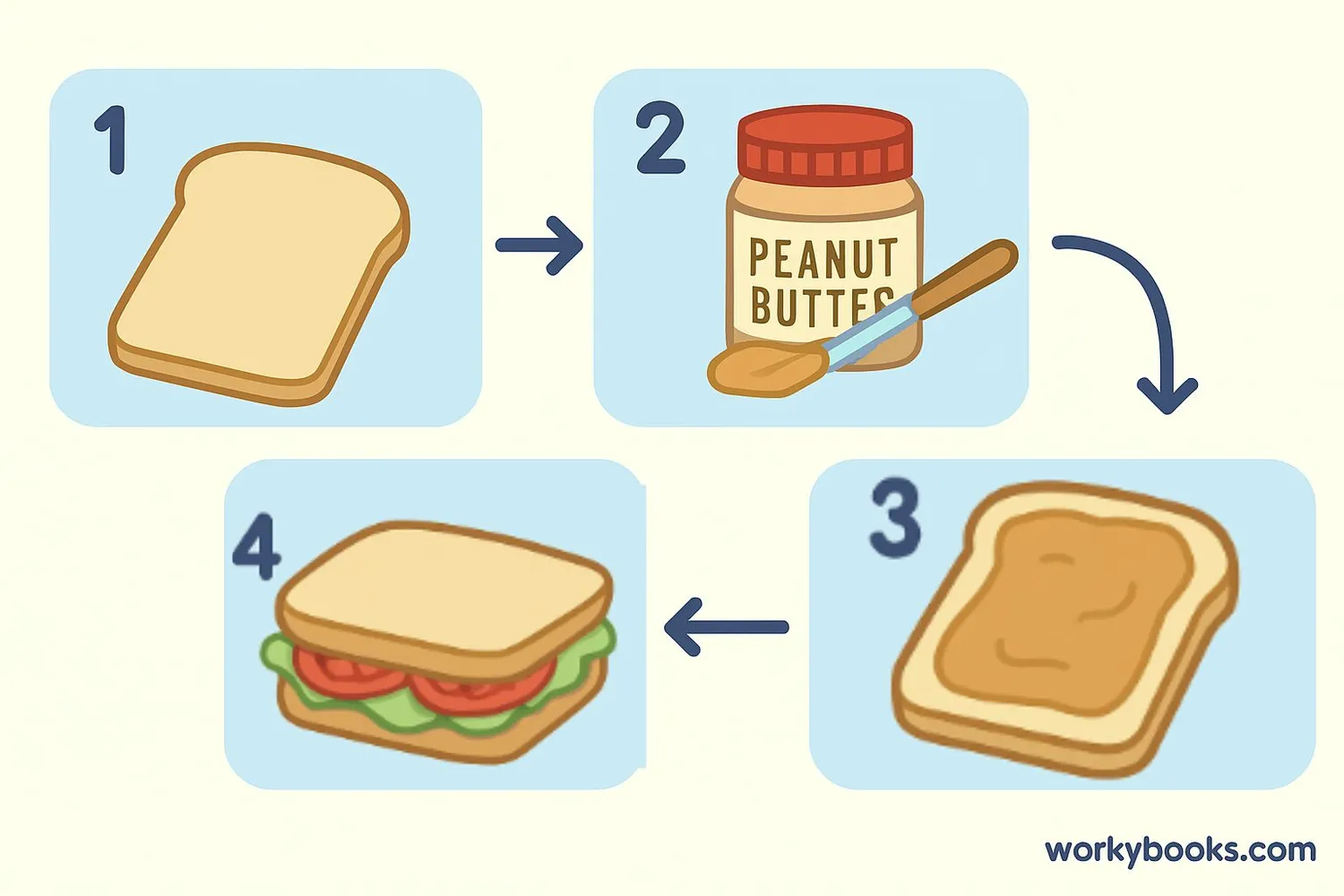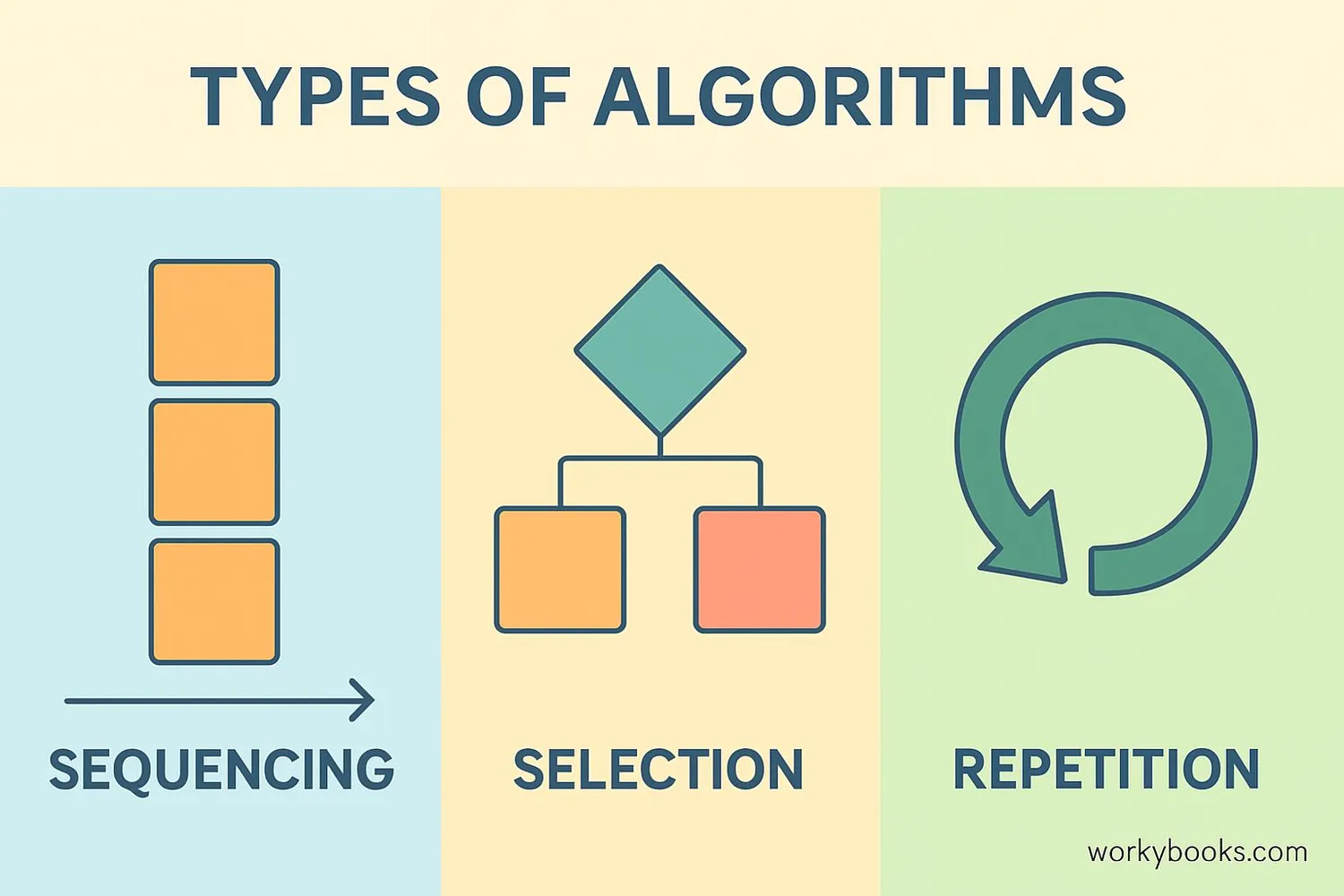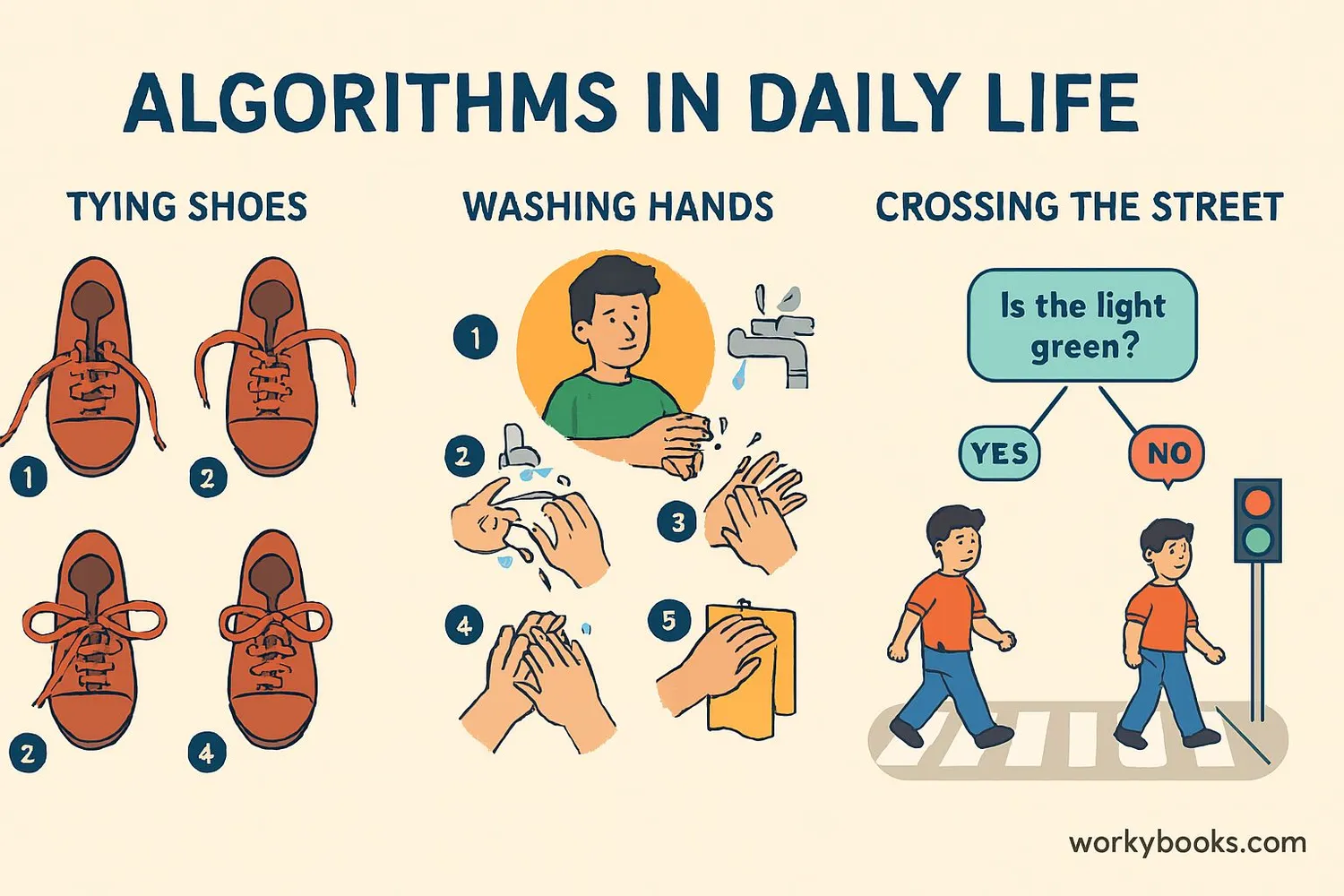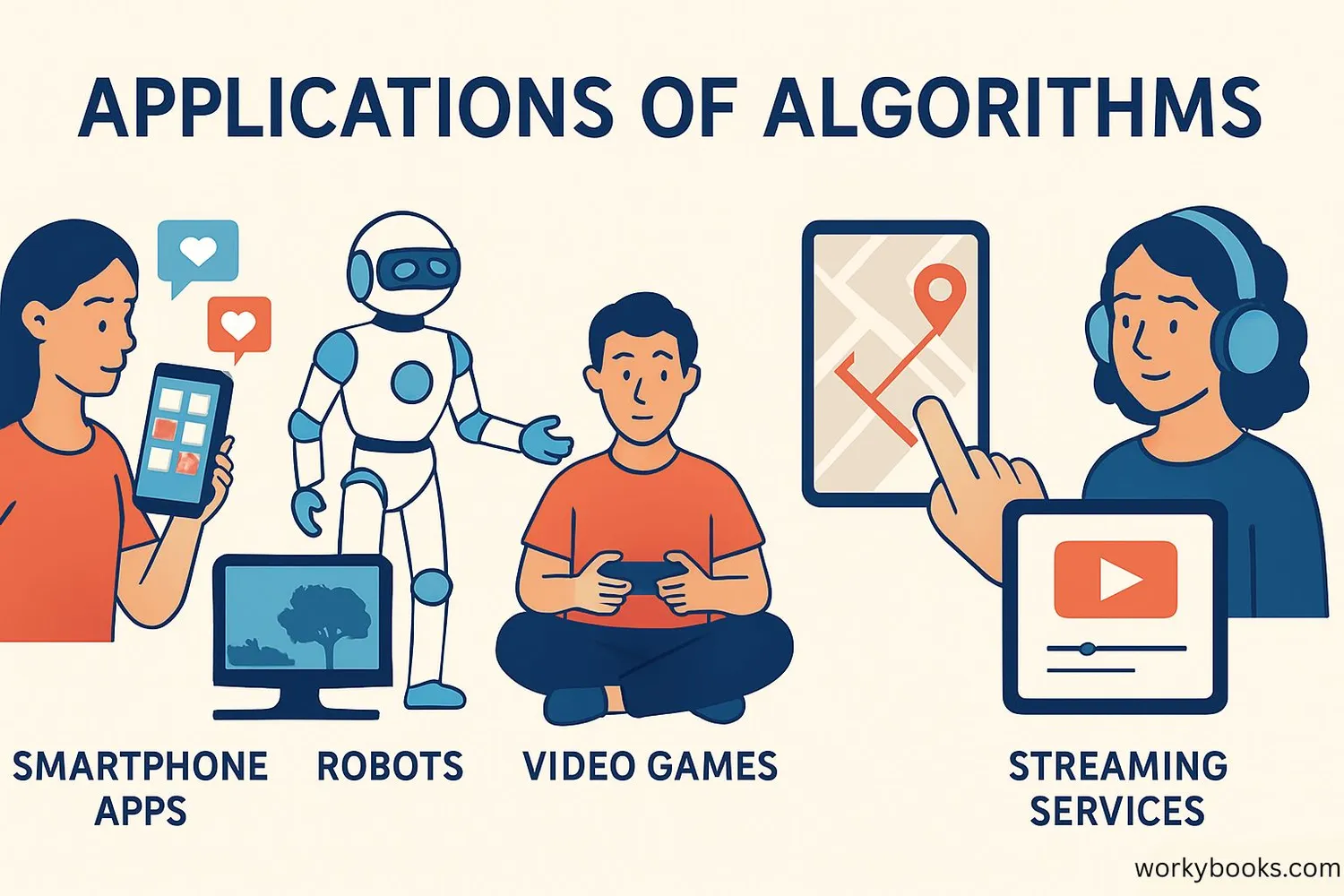What is an Algorithm? - Definition, Examples, Quiz, FAQ, Trivia
Learn how step-by-step instructions solve problems in computers and everyday life
What is an Algorithm?

An algorithm is a set of step-by-step instructions to solve a problem or complete a task. Think of it like a recipe for your favorite cookies - it tells you exactly what to do and in what order!
Algorithms aren't just for computers. You use algorithms every day when you:
- Follow directions to a friend's house
- Brush your teeth (step-by-step instructions)
- Solve a math problem
In computer science, algorithms help computers solve problems efficiently. They're the building blocks of all computer programs!
Key Concept
Algorithms must be precise, have a clear starting point, and eventually end with a solution.
Types of Algorithms

There are different types of algorithms for different kinds of problems. Here are three main types you should know:
Sequencing
Instructions follow one after another in a specific order. Like following a recipe step-by-step.
Selection
Making decisions based on conditions ("if this, then that"). Like choosing what to wear based on the weather.
Repetition
Doing the same steps multiple times (loops). Like brushing each tooth until all are clean.
Example: Making Breakfast Algorithm
- Start with an empty plate
- Take out bread, eggs, and milk
- If you want scrambled eggs, then crack eggs into bowl
- Repeat stirring eggs 10 times
- Cook eggs in pan for 5 minutes
- Toast bread until golden brown
- Pour glass of milk
- End with breakfast on plate
Algorithm Examples

Algorithms are all around us! Here are some examples you might recognize:
Tying Shoes
1. Cross the laces
2. Make a loop
3. Wrap the other lace around
4. Pull through the hole
5. Tighten
Sorting Numbers
1. Compare first two numbers
2. If first is larger, swap them
3. Move to next pair
4. Repeat until no swaps needed
Finding a Book
1. Go to library
2. Check computer for book location
3. Go to correct section
4. Search alphabetically
5. Find book
Computer Algorithms
Search engines like Google use complex algorithms to find websites. When you search for "cute puppies," Google's algorithm checks billions of web pages to find the best matches!
Why Algorithms Matter

Algorithms are incredibly important because they help us:
- Solve problems efficiently: Find the best solution quickly
- Automate tasks: Let computers do repetitive work
- Process information: Sort through huge amounts of data
- Make decisions: Help self-driving cars navigate safely
Without algorithms, computers couldn't do anything useful! They're the invisible instructions that make technology work.
Robotics
Robots use algorithms to see, move, and make decisions. A cleaning robot uses algorithms to map your home and avoid obstacles.
Video Games
Game characters follow algorithms for their behavior. Enemies decide when to chase you using selection algorithms.
Algorithm Practice Quiz
Test your understanding with this 5-question quiz. Choose the best answer for each question.
Frequently Asked Questions
Here are answers to common questions about algorithms:
Algorithm Trivia
Discover fascinating facts about algorithms:
Ancient Algorithms
The first known algorithm was created around 250 BC by the Greek mathematician Euclid. His algorithm found the greatest common divisor of two numbers and is still used today!
Google's Algorithm
Google's search algorithm checks over 200 factors to decide which websites to show first. It looks at things like the words on the page, site speed, and mobile-friendliness.
Space Algorithms
NASA uses complex algorithms to navigate spacecraft. The algorithms that guided the Apollo missions to the moon had less computing power than today's smartphones!
Game Algorithms
Chess-playing computers use algorithms that can evaluate millions of possible moves per second. The algorithm that beat world champion Garry Kasparov in 1997 was called Deep Blue.





